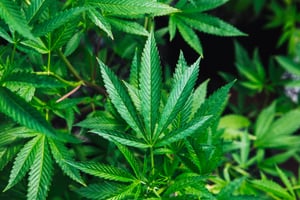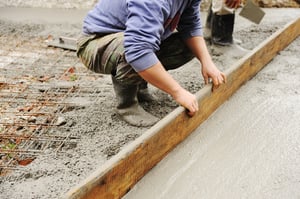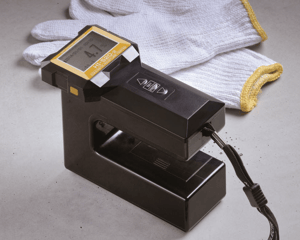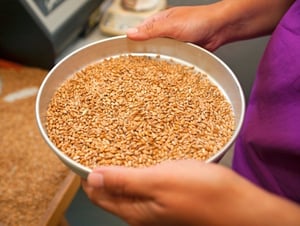 Medical hemp usage is a trend that doesn’t seem to be going away. According to a Gallup poll, 14% of Americans say they use CBD and hemp products, with 40% using it for pain relief, 20% for anxiety, and 11% to aid in sleep.
Medical hemp usage is a trend that doesn’t seem to be going away. According to a Gallup poll, 14% of Americans say they use CBD and hemp products, with 40% using it for pain relief, 20% for anxiety, and 11% to aid in sleep.
What’s the difference between hemp oil and CBD oil? While both are derived from the same cannabis sativa plants, hemp oil is cultivated from a strain with far less THC, which means that the plant is not considered a marijuana plant, but is instead considered a hemp plant. Both contain cannabinoids, which can help patients in the following ways:
- Reduce pain
- Relieve anxiety and depression
- Alleviate some cancer-related symptoms
- Potentially reduce acne and other skin issues
- Benefit those with neurological disorders
- Potentially help heart health
- Prevent diabetes
- It also shows some potential anti-tumor effects
There’s really not much of a difference between the two. Hemp oils produce the same helpful benefits for patients.
As this industry grows, it’s time to look at how medical hemp can be grown, cultivated, and processed in a regulated manner, to protect growers, processors, and consumers. So what test equipment is beneficial to creating medical hemp? Let’s take a look:
The Growing Stage
Using a moisture meter is an important part of the growing process in the medical hemp industry. The moisture level of the plant is essential to a quality end result.
Moisture levels can quickly impact the overall success of the growing stages. The wrong moisture levels can wreak havoc on your medical hemp crop. Too much water causes leaves to turn yellow, preventing oxygen from flowing through the plant. Too little water and leaves wilt and the plant can die.
Moisture meters, like the HB300 Programmable Universal Moisture Tester or a near-infrared moisture meter, like the KJT130 can test moisture levels in the soil to ensure that you are not overwatering or underwatering your plants. Both are portable and provide instant results, so you can quickly address any moisture level needs that arise.
Different levels of water can cause a hemp plant to “go hot--” that is, to show higher levels of THC present in the plant. THC is the component of cannabis that causes psychoactive effects. With medical hemp, this is not the desired outcome where trace (undetectable) amounts of THC and high amounts of CBD present are key. This has even been outlined by the federal government. Hemp can have no more than 0.3% THC levels-- much lower than the 1% minimum threshold in marijuana plants. As a grower, you can do your best to prevent this by monitoring moisture levels.
It’s a common myth that hemp plants are drought resistant and don’t require much water to grow. However, hemp grown outdoors requires 25-30 inches of rain per year, especially during the early stages of growth. The only way to properly monitor and optimize these levels is with a moisture meter like the HB300 or the KJT130.
The Drying Stage
Once the trichomes on the floral bud shift from white to milky white, it may be time to harvest. After your medical hemp crop has been grown and harvested, and you’ve entered the drying stage, it’s time to monitor the drying time, which has to happen within a certain time window for the drying process to be effective.
This is a critical stage for hemp. Any presence of mold or mildew decreases the value of the hemp floral biomass, so planning a timely and effective drying period is necessary to ensure the proper outcome. Plants are hung to dry, or laid flat on screens, but however they dry, the key is to keep a constant airflow and to use a dehumidifier to keep the room around 60% humidity.
The plants must dry to somewhere between 12 and 15% moisture content to prevent mold or mildew growth and then be ready for processing. The only accurate way to know when plants have reached this stage is by using a moisture meter.
You should use an NIR moisture meter to check the moisture levels of your plants. An NIR moisture meter will bounce a beam of light off of the drying flower buds, which excites the moisture molecules within the plant. Higher moisture content samples absorb more light, which means that you are left with an instantaneous, accurate, and nondestructive measurement of your biomass. It’s the very same reason why NIR moisture meters are so commonly used for the same purpose in the tobacco industry.
In determining which moisture meter to use for the drying process, you should consider the KJT130. It’s a handheld NIR moisture meter that is designed for portable use, so if you are hanging your hemp biomass on multiple racks, the KJT130 can travel with you to the farthest reaches of your drying room and provide you with accurate results.
If you are working in a lab, and want to get a moisture reading of a whole sample, the KB230 model also provides moisture level readings with incredible precision. It has a rotating turntable, so you get an average moisture level reading of your entire sample.
Moisture in your medical hemp can affect your end product --and your bottom line-- in a lot of ways. Of course, moisture and mold and mildew can affect the product’s quality. If you are buying or selling dried hemp, it also can make a huge difference in what you are spending.
Too wet, and you compromise the crop, earning less for your growing efforts, and shortening the shelf life of the plant. The plants can actually accumulate mold or decompose. Too dry, and you earn less money if you are selling in bulk. While the difference of a percentage point or two of moisture might not seem to be all that important, it can really add up if you are selling a large crop. This is why it’s crucial to use a reliable moisture meter, like the KJT130 to test moisture levels while your biomass is drying.
Processing Medical Hemp Oil
Once your hemp is dry, if you are intending to process your hemp into a medical hemp oil or a hemp seed oil, you must determine the potency of your hemp crop. You can use a spectrometer to find out how much CBD is present in the oil derived from the plant to find out the true potency of your hemp plants.
Using a spectrometer like the BSS1700 Scanning Spectrometer can help you monitor the amount and kind of cannabinoids present in your medical hemp seed oil-- and do so instantly.
The BSS1700 is easy to use, with no sample to prepare and can help you develop quality oil that has a high level of cannabinoids for maximum medical benefits. And when you use the BSS1700, all you have to do is place a small sample of the oil under the probe to be analyzed. It’s simple, which means you can train anyone on your team to do it.
Another important thing that a spectrometer can do? It can keep your product safe to use. A scanning spectrometer can test for the following elements:
- Residual solvent analysis
- Terpene profiling and quantitation
- Pesticide residuals analysis
- Toxic metal analysis
- Cannabinoid quantitation and profiling
The presence of pesticides and toxins is dangerous in a product designed for health and wellness. Testing your CBD oil for unsafe toxins, as well as for its potency and correct levels of all the elements within the sample will ensure that you have a top-quality product.
The other tool that is crucial to hemp oil processing is a composition analyzer, like the BS-R1700 and the BS-F1000. While these instruments can also read moisture levels and use NIR technology, their true power lies in testing hemp oil for contaminants and microbial growth. When dealing with a medical-grade product that may be shared with immuno-compromised patients, this is an important step. And there’s no wait time for results.
A composition analyzer also ensures that you have reached a homogeneous consistency so that you know you have a quality product. This is also why composition analyzers are used in the pharmaceutical industry, where precision matters to the potency, effectiveness, and safety of a drug. It’s why this instrument is so well-suited to creating medical hemp oil.
Whether you are searching for the right moisture meter or composition analyzer, or are just looking for additional supports in your grow room, Kett can help. We have the tools you need and have been serving both the agricultural and pharmaceutical industries for quite some time, making us the perfect partner for your medical hemp needs.
Can we help with your growing or processing needs to keep your plants happy and your oils top-notch? The answer is a resounding yes! Contact us today.
Or, download our latest guide: Test Equipment You Need to Be Successful in the Cannabis Industry


